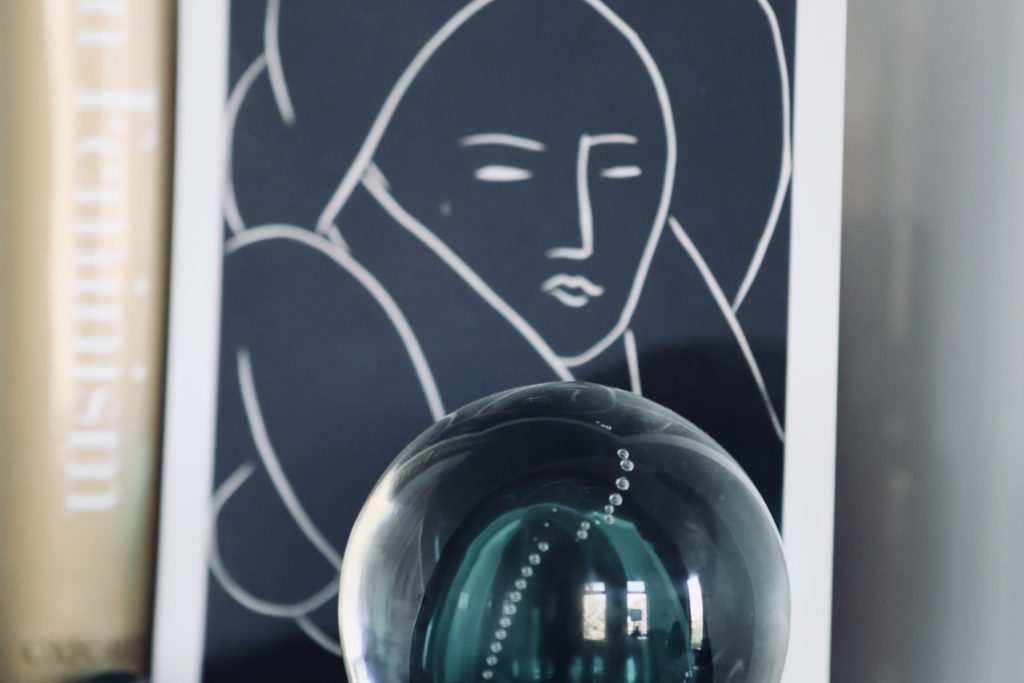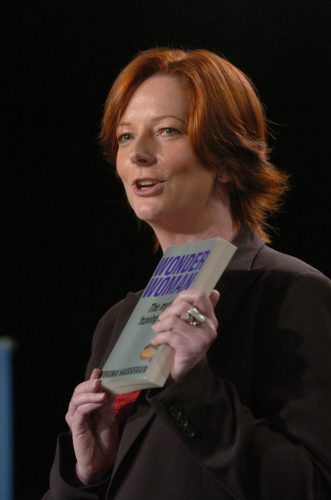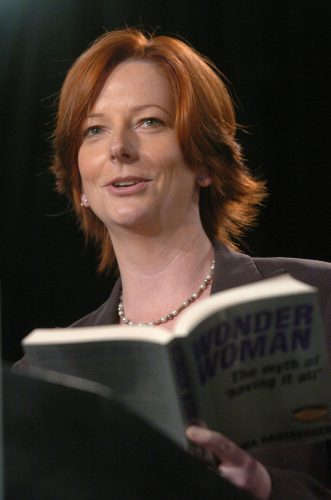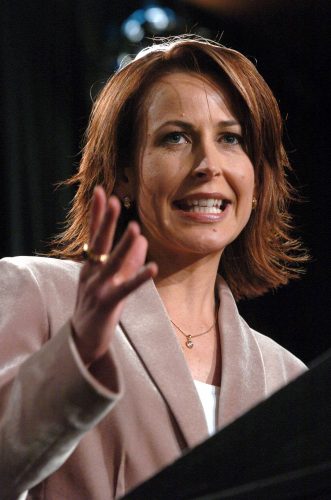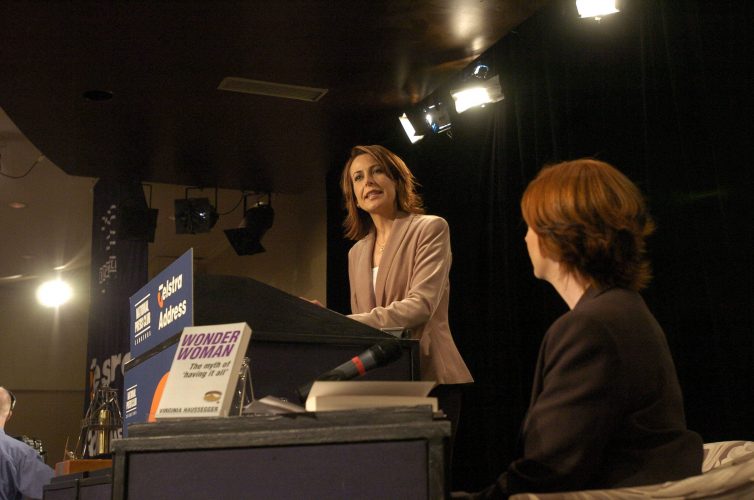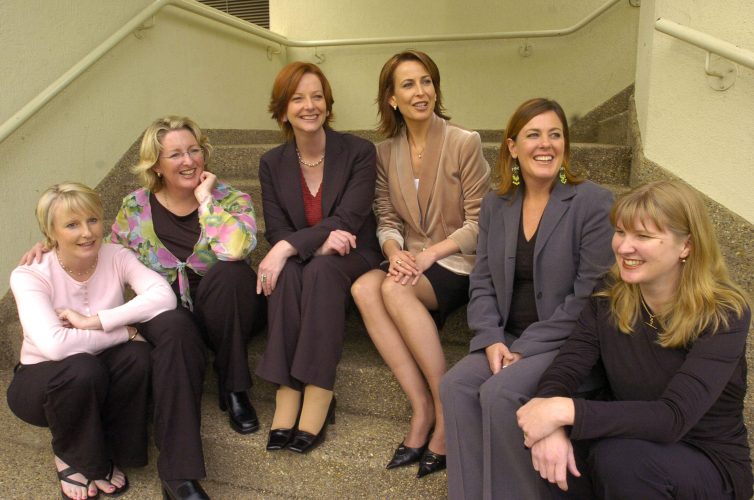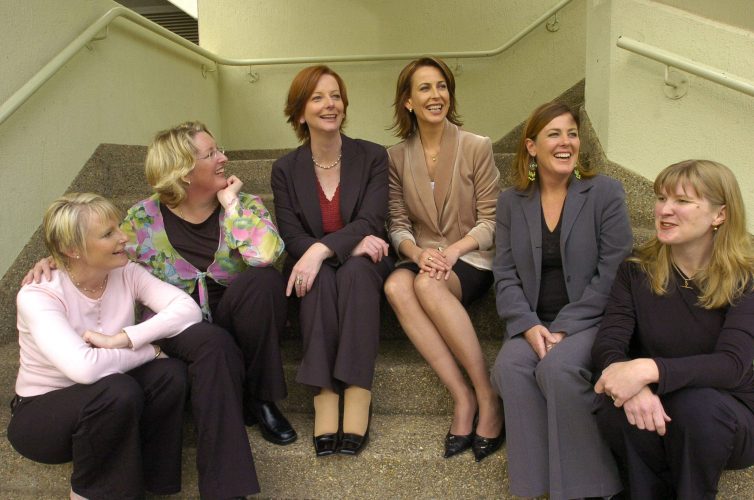Every time I use the “f” word in public I get walloped. Feminism is a funny thing. Just when you think you’ve got the old dear worked out, she throws off the knee rug, leaps up from the rocker and pulls your hair. Nasty. It’s usually the result of some profound disagreement. And if we’ve learnt nothing else during feminism’s third wave, we’ve certainly learnt that hell hath no fury like a feminist scorned. So I tread with trepidation.
But I take refuge in the knowledge that feminism is indeed a “broad church” as writer Elizabeth Farrelly once put it, “its cults many and varied”. Which is a kind way of saying – it takes all sorts. Yet, I would never have thought the head of the most famous feminist group in the US, the National Organisation for Women, was the sort of feminist to fall victim to the beauty myth – all over again. But she has.
Last week Terry O’Neill, the President of NOW, came out swinging against a proposed US tax on Botox, arguing that it was a “tax on middle-aged women”. If Naomi Wolf was dead, I’d be saying that she’d be turning in her grave right now. Fortunately she’s not dead, but perhaps her 1990 treatise on how “images of beauty are used against women” has been laid to rest – and long forgotten.
As chief of NOW, O’Neill leads a massive organization that has long been one of the most powerful voices for women in the US. Founded by Betty Friedan, NOW has been instrumental in groundbreaking legislative reform, and the organisation’s energetic campaigns have served as a model for women’s groups around the world, including in Australia. The most famous NOW action – burning a trash can full of bras and girdles outside a Miss America beauty pageant – became the stuff of folklore, and made ‘bra-burning’ a universal symbol of women’s liberation. As a symbol it’s perhaps been over-hyped, but at least it grabbed attention and made a point.
So what on earth is O’Neill doing now by falling backwards into the bottomless pit that is the beauty myth? When quizzed by Judith Warner in The New York Times as to why a tax on Botox was “devaluing” women “for being middle aged”, O’Neill argued that access to cosmetic surgery – Botox, breast enhancement, face lifts etc – is an important contemporary feminist issue. In a nutshell, this leading feminist is suggesting that if middle aged women are serious about getting – or keeping – a job, then they must buy into the myth that they are only as good as they look, and spend money on a good plastic surgeon. “I know a lot of women whose earning power stalled out or kicked down as they entered into their 50s, unlike their male counterparts’, whose really went up”, she told Warner. And no doubt that is very true. But is cosmetic surgery really the answer? And are women really the problem?
This issue is hot in the US right now because the massive health care reform bill currently before Congress includes a 5 percent excise tax on cosmetic surgery and “related procedures”. It’s been dubbed the ‘Bo-Tax’. O’Neill is arguing against it because she says it hits middle aged women hardest: which it no doubt does. But her claim that cosmetic surgery is not a luxury, but rather a modern day necessity is where she comes unstuck. Her argument that it’s up to women to nip, tuck and enhance themselves as much as they can afford, because “we live in a society that punishes women for getting older”, is where her particular brand of feminism not only falls apart, but shatters with contradiction.
As President of NOW, surely O’Neill is aware of her own organizations “Love Your Body” campaign? In its website blurb women are told how dreadful it is that Hollywood and the fashion, diet and cosmetic industries “make each of us believe that our bodies are unacceptable and need constant improvement”. The campaign calls on women to rally and “Together we can fight back”. So, where’s the ‘fight back” in encouraging middle age women to believe that the battle has been lost, and their best weapon of defence is the cosmetic surgeon’s scalpel, or the beautician’s syringe?
There is no doubt cosmetic surgery is no longer an ‘if’ but a ‘when’ proposition for many women. And as a dull ‘sameness’ pervades celebrity circles, where it’s getting increasingly harder to tell one puffed lip and expressionless brow from the other, perhaps it just doesn’t matter. Perhaps it’s just an exercise in choice. But where is the feminist scrutiny of that choice?
What hope is there of women receiving any respect and admiration for the wisdom and maturity they’ve achieved by middle age, if even NOW is telling them they’re old hags? Ironically the NOW “Love Your Body” campaign appears aimed at girls and young women, rather than those in their 40s, 50s or beyond. And yet it’s that older demographic most at risk of being socially sidelined and rendered invisible.
